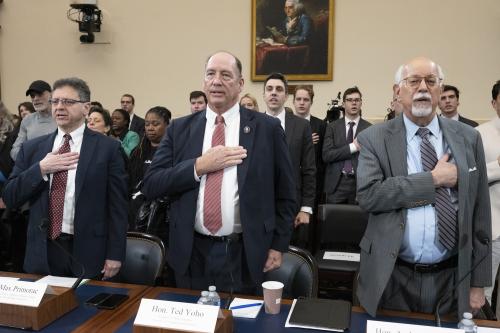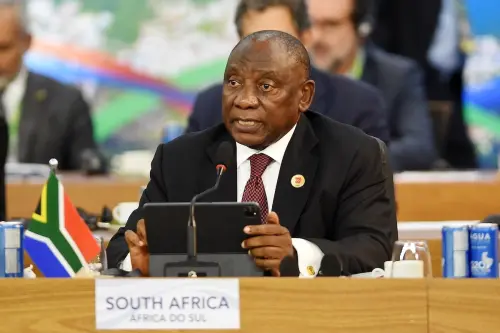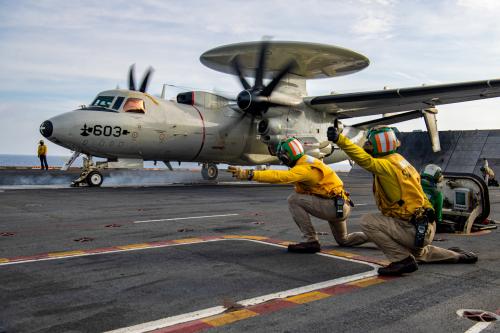Behind the daily barrage of heated rhetoric about Iran from many quarters, Israeli planners are quietly wrestling with some very hard decisions on how a future war would start.
Israeli leaders considering the pros and cons of a military strike on Iran’s nuclear facilities also must consider the pros and cons of a simultaneous strike on the missile arsenal in Lebanon of Iran’s client, the radical Shia Lebanese terrorist group, Hezbollah. The Israel Defense Forces have to calculate whether they would want to open two fronts at the same time, or let Hizbullah and Iran decide if and when to start a massive attack on Israel’s cities from the north.
Prime Minister Benjamin Netanyahu and other Israeli leaders have been increasingly clear in suggesting Israel is now seriously contemplating the use of force to halt, at least temporarily, the Iranian nuclear program. But they have said little in public about what Israel would do about Hezbollah, which is today the de facto ruler of Lebanon.
In the 2006 Israel-Lebanon war, Hezbollah fired almost 4,000 rockets and missiles into northern Israel, killing four dozen Israeli civilians. At the time, Hezbollah said it had more than 30,000 rockets in its inventory. Air power was not enough to stop the rain of missiles; Israeli ground forces belatedly entered the country to stop the attacks, which continued right up to a ceasefire.
Now, Hezbollah says it has many more rockets and missiles, including some with longer ranges and bigger payloads than six years ago. Israeli and American sources have even claimed that Hezbollah now has Scud missiles capable of hitting deep into Israel from deep inside Lebanon. It also has more surface-to-sea missiles, such as the one it used in 2006 to strike an Israeli Navy ship. In 2006, Hezbollah rained fire on Israel’s northern cities, including Haifa; today it can do that and more, including targeting Tel Aviv and West Jerusalem, and Israel’s only international airport. For IDF planners it is a formidable arsenal.
Israel can expect condemnation for any attack on Iran; it would get more if it were also at war with Hezbollah, and bombing Beirut.
Given Hezbollah’s close ties with Iran, which created the group with Syrian help in the early 1980s, it is a safe assumption that an Israeli military strike on Iran could spark Hezbollah to open fire. But no one knows for sure. The odds are very strong that Hezbollah would retaliate, but if it does so it would face a massive Israeli response that could shake the group’s grip on Lebanon. At a minimum, the group would face widespread destruction—not only of its arsenal, but of Lebanon’s civilian infrastructure as well.
Israeli military planners probably calculate that Hezbollah would attack. They would prefer to preempt such an attack, and at least take out the most dangerous and long-range missiles before they could be launched. That calculation argues for striking Iran and Lebanon simultaneously, in the hope that the first blows would weaken both adversaries and compel an early ceasefire. That means Israeli resources would be stretched from the start with two wars.
The ongoing civil war in Syria makes all of this even more complicated. The Syrian regime of Bashar al-Assad is more pro-Iranian and pro-Hezbollah than Bashar’s father’s ever was. Hafez al-Assad would have fought to the last Iranian or Lebanese; his son may be more adventurous. Bashar also is in a life-and-death struggle to survive today. Would Bashar be tempted—in a desperate effort to try to rally nationalist sentiment behind him at home—to lash out at Israel if Israel struck Iran and Lebanon? Since Syria has several hundred Scud missiles, and toxic-chemical warheads for them, the country is a serious military problem for any planner contemplating action.
The political implications of hitting Iran and Lebanon simultaneously are significant. Sympathy for Persian Iran may be limited in the Arab world, but sympathy for Arab Lebanon would be higher, especially if Israel were to strike first. Israel can expect condemnation from many quarters for any attack on Iran; it would get more if it were also at war with Hezbollah, and bombing Beirut.
The bottom line is that Israeli planners have to contemplate a multifront war from the moment of a strike on Iran. The more variables in any planning process, the more likely you will face unanticipated consequences and unpleasant surprises once the action begins. The devil is always in the details.
The Brookings Institution is committed to quality, independence, and impact.
We are supported by a diverse array of funders. In line with our values and policies, each Brookings publication represents the sole views of its author(s).



Commentary
Op-edIsrael’s Dilemma: If It Attacks Iran, Will It Also Have to Hit Hezbollah?
February 9, 2012